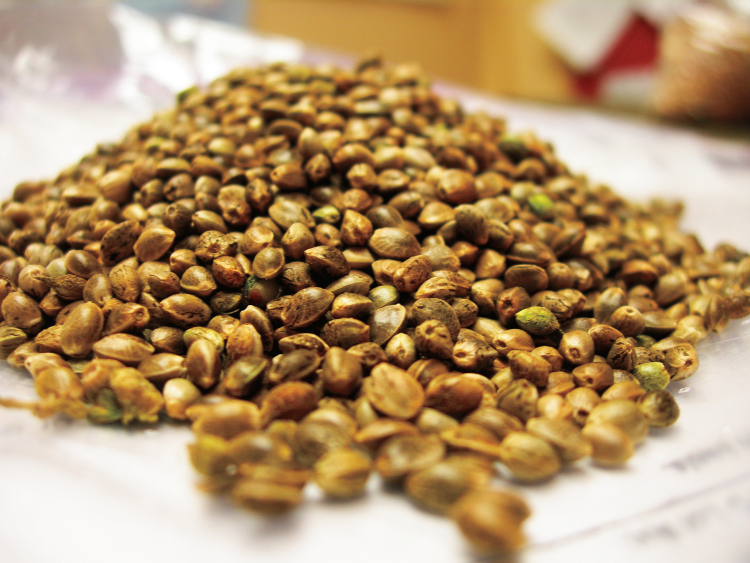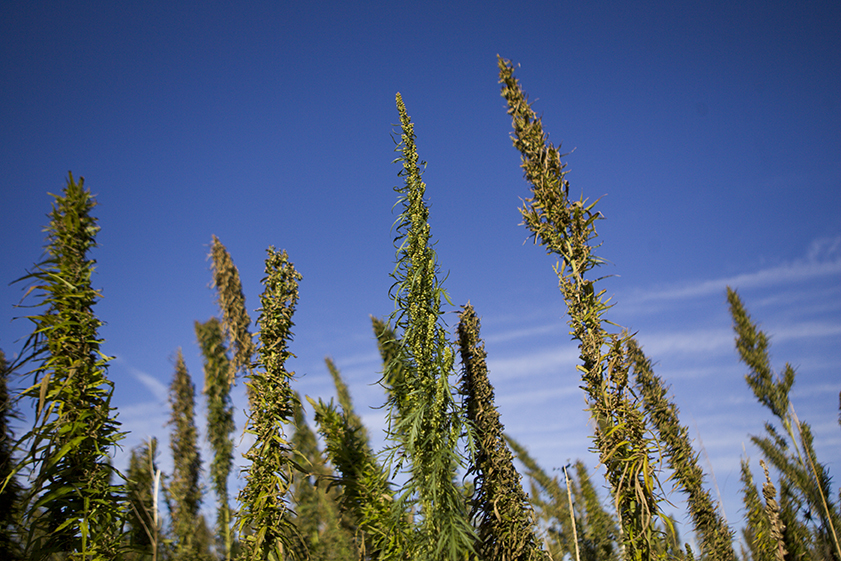Home > Kentucky > Kentucky Crops & Livestock > Plotting Kentucky Hemp Fields with Potential
Plotting Kentucky Hemp Fields with Potential
There are thousands of uses for industrial hemp, everything from automotive parts to pharmaceuticals.
It has been called a “super food” in much of the world for the strong nutritional value of its seeds and oils, and the plant could have a super effect on the nation’s agricultural economy.
Because of this, Kentucky is among several states that have lifted the veil of what has been hemp’s dark reputation. Farmers throughout the state are eager to see where this plant can take them.
“I’m not going to say it’s something that’s going to happen overnight, and there will be this huge production that’s going to create all these jobs right away,” says Brian Furnish, a farmer near Lexington who is chairman of the Kentucky Industrial Hemp Commission. “But what I do see, and what I’m hopeful for, is that the free market will have the opportunity to determine whether hemp can be viable in Kentucky or not.”
Hemp is a variety of Cannabis sativa. It’s from the same plant species as marijuana and has been illegal to grow in the United States for the past several decades. However, hemp doesn’t contain the potency of its “cousin” and, in fact, has an estimated 25,000 productive uses.
The Kentucky legislature passed Senate Bill 50 during its 2013 session, giving farmers in the state the go-ahead to grow industrial hemp.
James Comer, commissioner of the Kentucky Department of Agriculture, helped to spearhead the bill. A ruling in late summer 2013 by the U.S. Department of Justice will honor state laws regarding the production of industrial hemp.
Comer believes the plant’s impact could be far-reaching.
“To me there is no crop with more growth potential than industrial hemp because you can make so many things from it,” Comer says.
He points to the automotive industry in Kentucky as an example. Interior components of cars made in Germany, such as the Mercedes-Benz or the BMW, are made from industrial hemp.
“We’re still using plastic in the U.S. and a fiber called kenaf, a subtropical plant grown in Indonesia,” Comer says. “So we’re importing this plant from Indonesia to make automotive components. By growing industrial hemp in Kentucky, we would significantly reduce the carbon footprint and create a new market for Kentucky farmers. I think it’s a win-win situation.”





